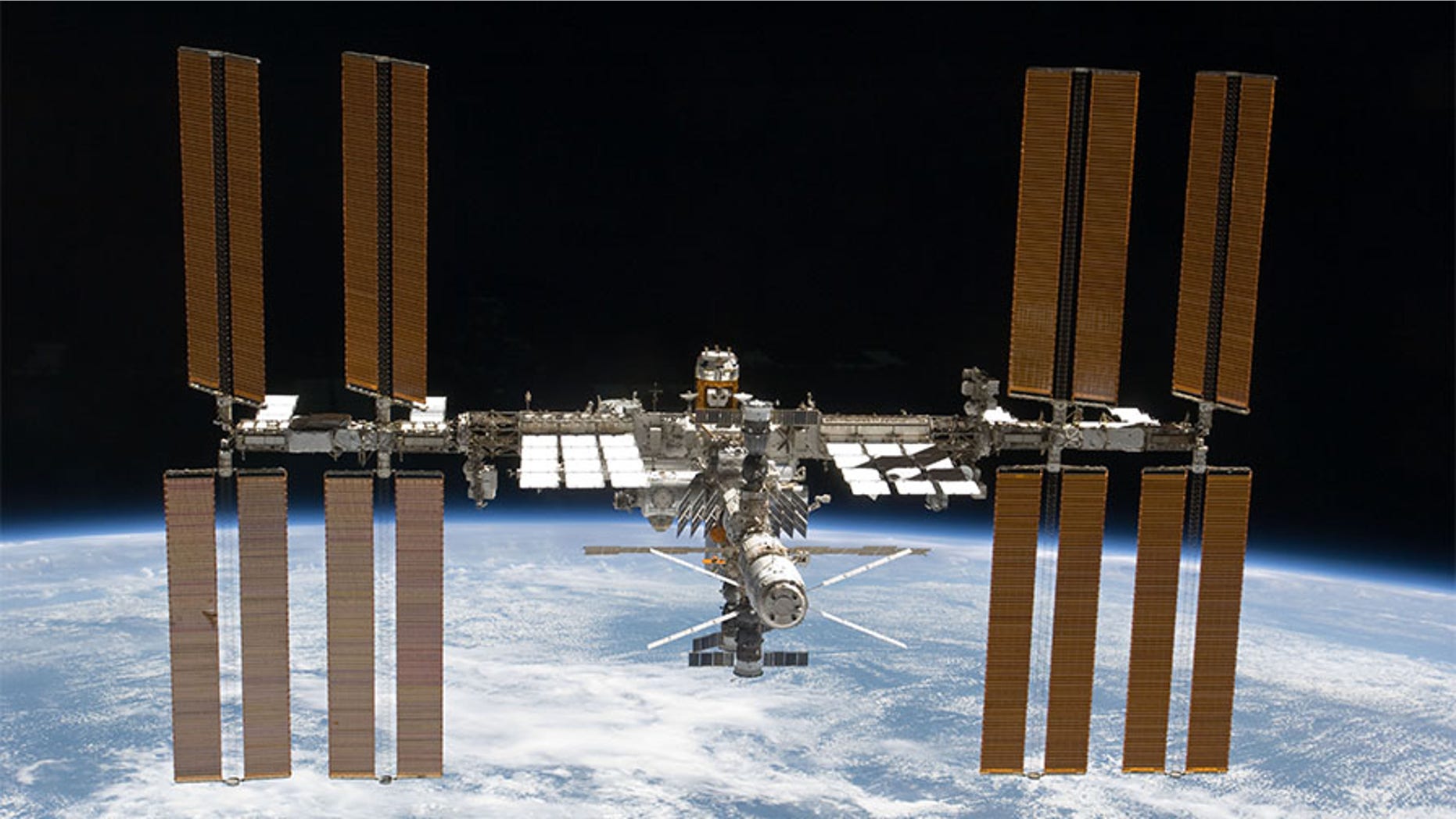
NASA has found that at least four herpes viruses reactivate in some astronauts on spaceflights to the Space Shuttle and the International Space Station. (The International Space Station is pictured, taken by an STS-133 crew member on space shuttle Discovery) (NASA/Discovery)
Four human herpes viruses have been found to reactivate in astronauts on space shuttle and International Space Station missions, according to new research by NASA.
The study, published in Frontiers in Microbiology last month, found that those viruses were able to flare up because of the high levels of stress astronauts undergo during spaceflight. It also found that the longer the mission, the higher the rates of reactivation.
Though the findings don’t show serious danger for current flights, longer missions, such as a mission to Mars, could be impacted by the potential of herpes viruses to be developed.
HERE’S WHAT NASA’S OPPORTUNITY ROVER SAW BEFORE ‘LIGHTS OUT’
"NASA astronauts endure weeks or even months exposed to microgravity and cosmic radiation — not to mention the extreme G forces of take-off and re-entry," Dr. Satish K. Mehta, of KBR Wyle at the Johnson Space Center and senior author of the study, said.
"This physical challenge is compounded by more familiar stressors like social separation, confinement and an altered sleep-wake cycle," Mehta added.
Researchers studied saliva, blood and urine samples from astronauts before, during and after spaceflight. They found stress hormones increased during the journey and dormant viruses resurfaced.
Scientists found four of the eight known human herpes viruses — for oral and genital herpes, for chicken pox and shingles, for Cytomegalovirus (CMV) and for Epstein-Barr virus (EBV). CMV and EBV are both known for causing different strains of mono.
NASA IS FINALLY GOING TO STUDY APOLLO MOON SAMPLES AFTER THEY WERE UNTOUCHED FOR 50 YEARS
"During spaceflight there is a rise in secretion of stress hormones like cortisol and adrenaline, which are known to suppress the immune system. In keeping with this, we find that astronaut's immune cells — particularly those that normally suppress and eliminate viruses — become less effective during spaceflight and sometimes for up to 60 days after," Mehta said.
Mehta added that 53 percent of astronauts on shorter space shuttle flights and 61 percent of astronauts on longer International Space Station missions had traces of herpes viruses in their saliva or urine samples, which is higher in frequency and quantity than in samples from before or after spaceflight. However, only six astronauts developed actual symptoms from viral reactivation and even those symptoms were minor.
"The magnitude, frequency and duration of viral shedding [reactivation] all increase with length of spaceflight," Mehta said.
That could affect how NASA prepares to send humans deeper into space, past the moon and Mars.
"The ideal countermeasure is vaccination for astronauts — but this is so far available only against VZV [the virus responsible for chickenpox and shingles],” Mehta said, adding that "trials of other herpes virus vaccines show little promise, so our present focus is on developing targeted treatment regimens for individuals suffering the consequences of viral reactivation.”
Bagikan Berita Ini














0 Response to "NASA study finds herpes viruses reactivate in astronauts, what causes flare-ups in space - Fox News"
Post a Comment